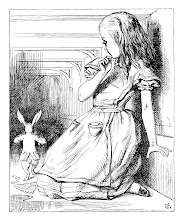
My wordle above comes care of wordle...
I’ve been doing a lot of alphabetisation, organising Carolyn’s university and home offices. And talking about definitions of “poetics,” which, as she points out, is being used in rather a vague manner. I was inspired after discussing this over lunch (there are some wonderful perks in helping organise the library…) to go home and check the OED on poetics and poesis…
The OED lists the noun uses of “poetic” (no entry for “poetics,” even though that is almost exclusively how I hear it used here…) as follows:
B. n.
1. In sing. and pl.
a. The aspect of literary criticism that deals with poetry; the branch of knowledge that deals with the techniques of poetry. Also: a treatise on poetic art, spec. that written by Aristotle.
1656 T. STANLEY Hist. Philos. II. VI. 31 Philologick... Poeticks. 1702 Perfidious P 134, I believe you are the only Man that ever read Aristotle, that had the shadow of a Reason against any thing he has said in his Poeticks. 1776 C. BURNEY Gen. Hist. Music I. Pref. p. viii, It is imagined that Plutarch took it either from his [sc. Aristotle's] Treatise on Music, or the second book of his Poetics. 1807 BYRON Let. 30 June (1973) I. 123 Even the hero of my Cornelian (who is now sitting vis-a-vis, reading a volume of my poetics) passed me in Trinity walks. 1834 Penny Cycl. II. 335/2Aristotle's genuine extant works may be divided into three classes: 1. Those relating to the philosophy of the mind... To this head may be referred..his Rhetoric and Poetic: the last of which works is imperfect. 1879 M. PATTISON Milton xiii. 200 The principle of the Aristotelean Poetic. 1917 T. S. ELIOT Prufrock 38 With your air indifferent and imperious At a stroke our mad poetics to confute. 1990 Bull. Hispanic Stud. 67 331 In the past few years, the application of narratological and semiotic approaches has proved to be crucial for the development of a poetics of the romancero.
b. The creative principles informing any literary, social or cultural construction, or the theoretical study of these; a theory of form.
1927 Contemp. Rev. July 59 M. Valéry's poetics have been accused of hermetism and of preciousness. 1973 Word 1970 26 66 Jakobson avoids the term stylistics, preferring instead poetics. 1976 Times Lit. Suppl. 2 Jan. 11/2 To subscribe to this poetic was to doubt the validity of art and the veracity of dreams. 1977 A. SHERIDAN tr. J. Lacan Écritsiii. 102 This notion must be approached through its resonances in what I shall call the poetics of the Freudian corpus.1990 Lit. & Ling. Computing 5 197/1 Now more than ever poetics aspires to integrate itself within the evolving larger field of the human sciences.
2. A writer of poetry, a poet. Obs. rare.
1687 J. PARRY To Cleveland in J. Cleveland Wks. 286 Where all Poeticks else may truckle under. 1687 J. PARRY Elegy on Cleveland in J. Cleveland Wks. 285 'Tis your Crime T'upbraid the State-Poeticks of this time.
3. In pl. Poetic composition; the writing of poems. Obs. rare.
1851 T. CARLYLE Life J. Sterling II. x. 285 Our valiant friend..was not to be repulsed from his Poetics either by the world's coldness or by mine.
Most people seem to have abandoned the original, Aristotelian use of the word. So 1b is the winner when it comes to the way the word is bandied around.
But then! Ah yes, but the… there is also poesis. It’s entry is as follows:
1. A poem; poems collectively, poetry, verse; poesy. Now rare.
1565 J. HALL Courte of Vertu (title) A poesis in forme of a uisyon. 1567 T. DRANT tr. Horace Arte of Poetrie sig. Aiiiv,Not lore enough in Poesis, let them be sweetlye fynde, And let them leade to where them liste the hearers plyante mynde. 1617 J. DAVIES Wits Bedlam sig. H3v, Poesie be..A speaking Picture..Then must a Picture needs be made, by this, A silent Poesis, subiect to the Eye. 1742 W. CLARKE & W. BOWYER tr. J. Trapp Lect. Poetry 22 We generally use the Words Poesis and Poetica, Poesy and Poetry, indiscriminately. 1894 Amer. Jrnl. Philol. 15 16 Before Lucilius's time a single play (poema) had been called satura, he gave this designation to his thirty books (poesis). 1899 J. E. SPINGARN Hist. Lit. Crit. 27 Poetica is the art of composing poetry, poesis, the poetry composed according to this art.1993 Faquery 1: who writes R.A.P.? in rec.arts.poems (Usenet newsgroup) 16 Apr., Discussions about the art of poetry and the science of poesis, including issues about use of language, poetical forms, and the work of various poets.
2. The process of making; production, creation; creativity, culture (cf. POIESIS n.).
1903 L. F. WARD Pure Sociol. II. v. 88 Poesis is a form of creative synthesis. 1939 S. CHUGERMAN Lester S. Ward 271Poesis is the creative, synthetic process of the intellect applied to all the sciences and practical arts. 1963 F. C. CREWSPooh Perplex (1979) 91 It is clear that the object of study here..falls essentially into the category of art, or broadly speaking, poesis. 1989 Requiem 9 I. 35 The first poem, the Original original one..was God's literal poesis of the world.2003 Chicago Rev. (Nexis) 49 31 Reading as poesisa materially based making of the text into something of use, positioning it phrase by phrase..in complex..relation to one's projects.
This second meaning seems to me to have been lumped into “poetics” these days. Yes? No? And I’m interesting that all the uses of poesis in this second sense fall after the start of the 20th century.








